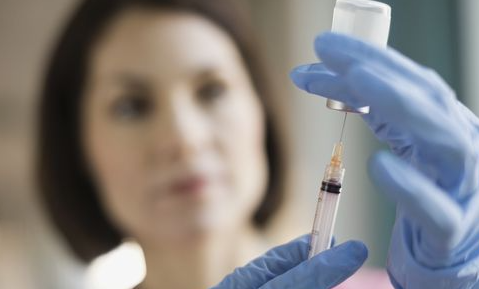Seven FAQs about Human Immune Globulin

Seven FAQs about Human Immune Globulin

- What is human immunoglobulin?
It is made from the plasma of healthy people, separated and purified to remove anti-complement activity, processed by virus inactivation, and freeze-dried. The human immune globulin is not less than 96% of the total protein. It contains a suitable amount of maltose stabilizer, without preservatives and antibiotics. Human immunoglobulin is made up of human immunoglobulin and histamine phosphate treated by virus inactivation. Histamine human immunoglobulin is a lyophilized white or light yellow loose body with no signs of melting. It is a colorless or light yellow solution after reconstitution. It can be opalescent, which can enhance the immune function of the body's histamine and is used to prevent bronchial tubes. Allergic diseases such as asthma, allergic skin diseases and urticaria. The main components are:
1). Immunoglobulin (Ig): Refers to a globulin with antibody (Ab) activity or chemical structure similar to an antibody molecule. Immunoglobulin is a four-peptide chain structure formed by two identical light chains and two identical heavy chains connected by interchain disulfide bonds. Immunoglobulins are divided into five categories, namely immunoglobulin G (IgG), immunoglobulin A (IgA), immunoglobulin M (IgM), immunoglobulin D (IgD) and immunoglobulin E (IgE).
2). Histamine phosphate is mainly used for the examination of gastric secretion function; auxiliary diagnosis of leprosy and desensitization.
- What is the Indication of human immunoglobulin?
1). Primary immunoglobulin deficiency, such as X-linked hypoimmunoglobulinemia, common variant immunodeficiency disease, immunoglobulin G subtype deficiency disease, etc.
2). Secondary immunoglobulin deficiency diseases, such as severe infection, neonatal sepsis, etc.
3). Autoimmune diseases, such as primary thrombocytopenic purpura and Kawasaki disease.
- What is the role of intravenous human immunoglobulin?
Intravenous injection of human immunoglobulin is an immunological preparation prepared from immunoglobulin extracted from human blood. It is a broad-spectrum antiviral preparation and is generally used clinically to treat immune diseases.
- Who usually uses intravenous human immunoglobulin?
Generally, people with immunodeficiency need to use this product, such as severe infection, Kawasaki disease and other immune diseases. In addition, patients with liver disease will also use this product in clinic.
- What are the safety steps in the blood product production process?
Blood products must be detoxified during the production process. Generally speaking, this is also a key link to ensure product quality. In addition, before blood collection, a medical examination is required. The raw materials come from human blood, although the raw plasma was screened for related pathogens, and measures to remove and inactivate viruses were added to the production process, however, in theory, there is still a potential risk of spreading certain known and unknown pathogens. The pros and cons should be weighed in clinical use.
- What are the health risks of injecting HIV-positive blood products?
A positive HIV antibody means that the virus is not completely eliminated during the production process, and there is a certain risk of infection, but it is not equivalent to being infected with AIDS. The injection itself has gone through the anti-virus link, and the problematic batch of products is not completely disinfected, but the toxic content is not high, and the risk of infection is much smaller than that of ordinary people who are exposed to the common infection routes of AIDS.
- What should people do if they use this contaminated batch?
It is recommended to go to the local CDC for blood test.
About Creative Biomart Therapeutic Proteins
Protein-based therapeutics are highly successful in clinic and currently enjoy unprecedented recognition of their potential. Recently approved recombinant protein therapeutics have been developed to treat a wide variety of clinical indications, including cancers, autoimmunity/inflammation, exposure to infectious agents, and genetic disorders. Over the past 10 years, Creative BioMart has become a leader in discovery and manufacturing of recombinant proteins, such as Tuberculin, Human cytokine granulocyte-macrophage colony stimulating factor, providing quality products and services to our customers for both academic and industrial field.